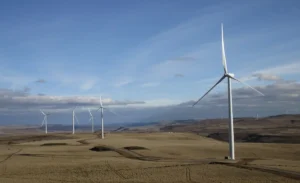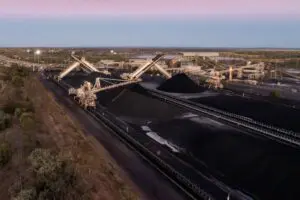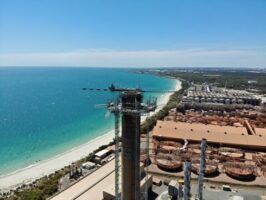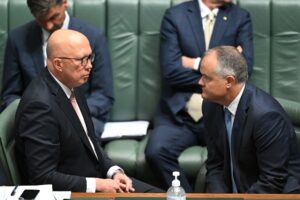Three Japanese energy giants have scrapped plans to build a 2GW coal-fired power plant in in the Chiba Prefecture, near Tokyo, citing the results of their feasibility study which determined the project would not be economically feasible.
The decision by Japanese petroleum company Idemitsu Kosan, energy company Kyushu Electric Power, and natural gas provider Tokyo Gas is further proof of a wide-scale shift away from traditional power generation technologies such as coal and nuclear for the island nation towards renewable energy technologies.
The three companies said a joint feasibility study found that “the project cannot yield initially expected investment returns” leading to a joint decision to “cancel further feasibility studies of a coal-fired thermal power plant.”
Kyushu Electric Power and Tokyo Gas, however, announced that they would continue a feasibility study for the construction of an LNG-fired thermal combined-cycle power plant to be built at the same location.
The decision to cancel development of the project comes just over a month since a similar announcement was made by Japanese electric utility Chugoku Electric Power and steel manufacturer JFE Steel to scrap the development of a 1,070MW coal-fired power plant, also in Chiba, similarly explaining that the project would not be economically feasible.
The Global Coal Plant Tracker has tracked a total of 11 coal-fired power units at 8 locations cancelled in Japan since 2017 for a total of 7.1 GW – including 2.3 GW cancelled in 2018.
Tim Buckley and Simon Nicholas at the Institute for Energy Economics & Financial Analysis (IEEFA) says this is “a strategic pivot away from coal, driven by a recognition of the stranded asset risks in thermal coal mining and power generation, and a better understanding of the importance of effecting immediate action to address global climate change.”
This growing trend is also tied into the larger shift in Japan towards renewable energy technologies which was, at least in part, driven by the disastrous nuclear meltdown of the Fukushima Daiichi Nuclear Power Plant in 2011, which turned the public and politicians against nuclear power.
Since then, Japan has either shut down or completely shuttered its nuclear fleet, and its power companies and executives have signalled and announced plans to transition to renewable power.
This was seen clearly last year when two Memorandums of Understanding (MoUs) were signed by leading Japanese power companies with international developers in an effort to begin developing offshore wind projects.
In July of 2018, Tokyo Electric Power Company (TEPCO) president Tomoaki Kobayakawa outlined his plans to develop 6 to 7 GW of renewable energy across Japan and overseas – focusing on offshore wind, and in particular floating offshore wind.
Just over a month later, Japan’s Electric Power Development Co., better known as J-Power, signed an MoU with French multinational electric utility ENGIE to similarly collaborate on power projects, specifically offshore and floating offshore wind.
TEPCO followed up their president’s plans in January of this year with an MoU signed with Danish power giant Ørsted to explore the possibility of jointly developing offshore wind projects – starting first with the proposed Choshi offshore wind project near Tokyo.










